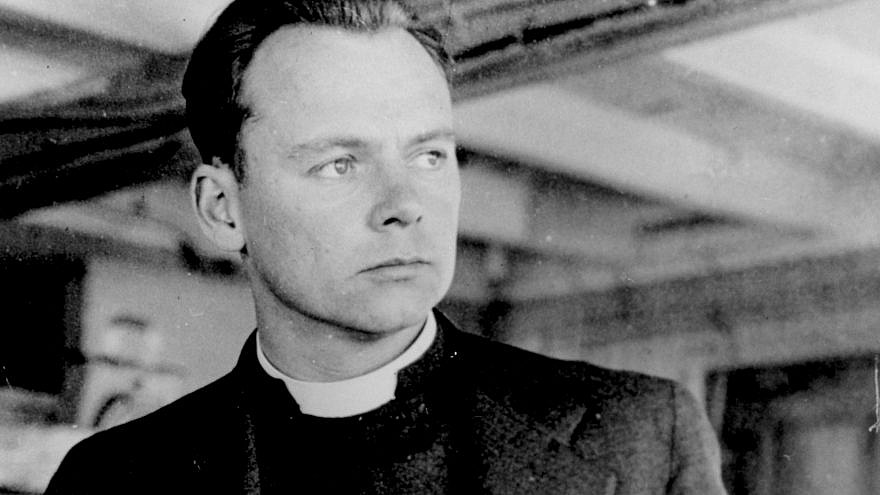John Stanley Grauel was credited by Golda Meir with having played a pivotal role in persuading representatives of the United Nations to end the British Mandate and partition Palestine. As Grauel was a Christian minister, his role in the creation of the Jewish state is surely remarkable. Equally notable are the Israel Defense Forces’ markers on his Jerusalem gravestone, signifying his role in the Haganah.
Grauel’s path to Jerusalem took place step by step. Born into a liberal New England clan, he decided at the age of 23 to study at a Methodist seminary. During the years Grauel was at the seminary, his wife and son died in childbirth. He never remarried. The great commitments of his life thereafter were to his religion and to Zionism.
During the early 1940s, Grauel followed events in Europe with a keen awareness of Nazi persecution. A Jewish friend—a local judge in Massachusetts—put Grauel in touch with the American-Christian Palestine Committee, an ad hoc group set up by Zionists. His enthusiasm prompted the committee to name Grauel their Philadelphia director. As a result, Grauel was introduced to Rabbi Stephen Wise, and in 1944, Wise informed him of the genocide taking place in Europe. Grauel later met David Ben-Gurion and quickly grew eager to act.
Working alongside Haganah leaders, Grauel became aware of some of their activities and asked to join them. Soon, he was participating in meetings alongside Ben-Gurion, Golda Meir, Teddy Kollek and other Jewish leaders in clandestine stateside operations, raising “funds to buy guns, bullets and ships needed for the creation of a new state.”
After learning about plans for the ship that was to become known as the Exodus, Grauel asked to join the effort, heading to Europe to direct the secret gathering of the ship’s 4,500 passengers. He was also one of its mates, and when the British fired on the Exodus in international waters, he fled to shore and informed reporters from around the world about the attack, speaking with the authority of a Christian minister.
Escaping from his subsequent British arrest, Grauel next went to the United Nations to report on British misdeeds and the risks presented to the Jews if there was no partition. By all accounts, his testimony was likely the most influential and persuasive one offered.
In the next two decades, Grauel worked to expose the mistreatment and oppression of Jews in Algeria and Morocco. That they had a place of refuge to which they could flee is a credit to the efforts of people like John Stanley Grauel.


























